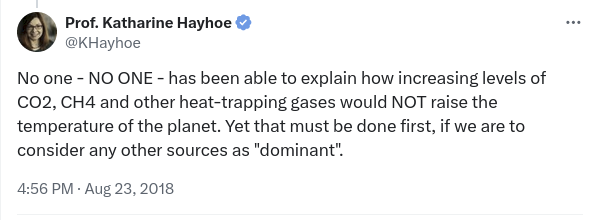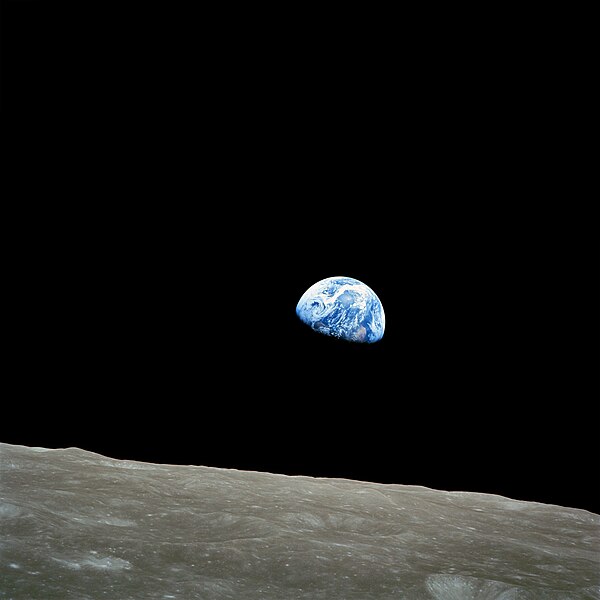Katharine Hayhoe's Challenge to Sceptics
Re-upping this 2018 tweet by climate scientist, Katharine Hayhoe.
The original tweet can be seen here. Nearly six years later the thread in which it occurs is still well worth a bookmark. It's packed with resources, both in the main thread and dispensed during the course of answering the questions of many of those replying.
The thread also provides a glimpse of some of the nonsense that climate scientists are subjected to on social media. People replying with no relevant qualifications, little understanding of the topic, and no desire or capacity to learn, but who nevertheless have a direct line to experts in their field which they can use to be disrespectful, dismissive and abusive.
NB. Prof Hayhoe makes a typo in that thread. She states that on average "all geologic activity put together, emits only about 10% of the heat-trapping gases that humans do". She later corrects that to 1% [sic].


